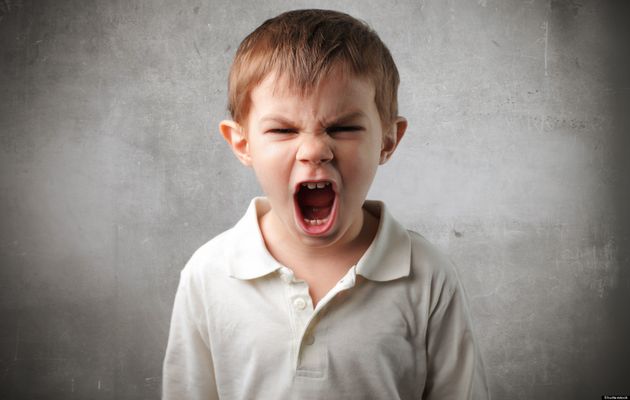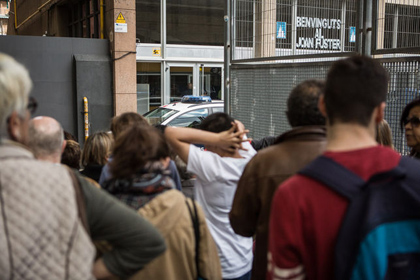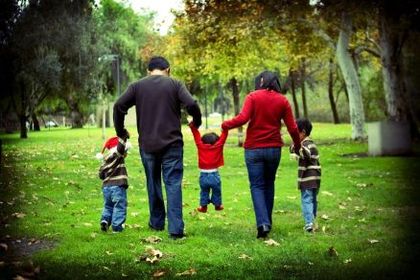“We cannot blame violence only on mental health issues”
A 13-year-old boy armed with a crossbow and a machete killed a teacher in Barcelona. Christian educators and psychologists: it is a mistake to look for quick answers.
Protestante Digital · BARCELONA · 27 APRIL 2015 · 10:47 CET

The debate about violence among young teenagers has become a major issue in Spain after a 13-year-old student killed a teacher in a classroom in Barcelona, last week.
The boy arrived late for school and when a female teacher opened the door, he fired the crossbow at her face. The boy is then said to have fired at the teacher’s daughter. Hearing screams, another teacher covering as a substitute for a colleague, entered the classroom and the boy attacked him. He fell to the ground and died.
There is a growing concern in our society for the growth of violence, and Protestante Digital has talked with Christian professionals in different areas, to analyse this issue.
A CULTURE OF VIOLENCE
“Violence has always existed”, Secondary school teacher Francisco Sánchez said, “but being exposed to a cruel and daily violence through mass media, is something that we are suffering in our days. The film, television and videogames industries commercialise it. And we can even see it growing in sports events”, he added.
The psychologist, Lidia Martín warned that “people are annoyed, defensive, and even paranoid about some issues”. “We do no think well of each other, we think the worst since the beginning, just in case…We have admitted violence as a way to solve our problems and conflicts. We have assumed that `everybody does it´, as if that was true. We believe that, in order to be heard by others, we have to be firm, and firm usually means rude, unpleasant, or even violent. We keep encouraging that behaviour as normal, and we get what we get”, Martin lamented.

AN ISOLATED ACT?
Although the incident with the minor in Barcelona is not common, it is necessary to deeply analyse the educational models of our society. The criminologist Priscila Romo believed that “it is a mistake to look for a quick solution to the problem”.
“The analysis in the heat of the moment only covers the real problem: a lack of affection, childhood traumas, hate, that can lead someone to hurt others. Sometimes, we just say they have mental health issues and we wash our hands of the problem”, Romo explained. “But we need to focus on finding the real reason of the crime and what can we do as a society to stop the violence”, she added.
“TEACHING EMOTIONAL INTELLIGENCE STRATEGIES”
From her experience working with children at different levels, Lidia Martín confirmed the importance of paying attention to this problem: “If there are activities hard to promote are those that aim to give children emotional intelligence strategies of self-control, decision making and problem solving, because many think that it is something they already know”, she told Protestante Digital, but “that is not what we do, we just need to go to a sport event with children, to see how dysfunctional we all are on this”.

The family also plays an important role: “A very permissive and indulgent education causes children with low self-esteem and empathy, who do no follow the rules or recognise authority; and a dictatorial style, causes passive and submissive children, without social skills”, the psychologist María Jesús Nuñez explained.
“So the key is in the balance: caring parents, who are firm with the rules, who raise their children with values, having also in mind the importance of their spirituality, will be good a antidote against violence”, she concluded.
“Youth needs limits, advices, discipline, order, beliefs, responsibilities, so that they can mature. We are creating a sick society, and maybe this violence is a result of a generation where everything is fine, without values, without no’s”, Priscila Romo commented.
THE CHURCH
According to Francisco Sánchez: “the church should be an example, just as Jesus, the one who suffered more violence, was an example too.”
“I know it may seem old fashioned or taboo to talk about things like sin, eternity, heaven or hell, but, without accepting the creation, the Fall, salvation and transformation, we will miss the whole picture, because men are not good by nature.”
Published in: Evangelical Focus - life & tech - “We cannot blame violence only on mental health issues”
